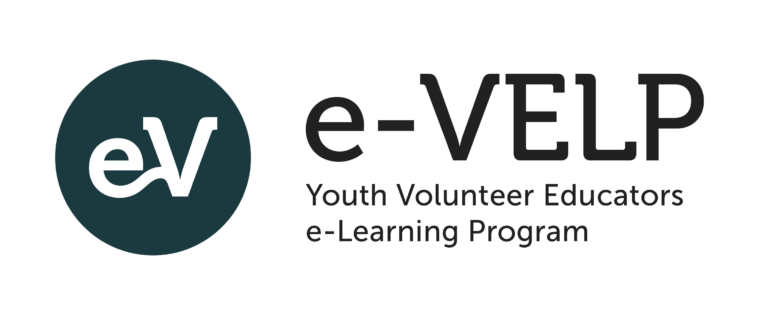Unit A.1.3 Skills Mapping: Assessing my own skills
Skills Mapping: Assessing my own skills
Skills Mapping: Assessing my own skills
Skills Mapping: Assessing my own skills
Some people know since a very early age what they want to become, and what role they wish to play in society. Lucky them!
However, many other people only discover their path later in life, through experience.
Remember: everybody is unique, therefore the way in which you can best contribute in your local community is yours and yours only.


Through this online course we will hopefully help you gain the confidence and skills necessary to conduct workshops within your local community.
The choice of specific topic or skill you will teach other people through your workshops depends entirely on you. For example, you might want to give workshops to teach your local language, or cooking classes, music, arts, etc.
No matter what you teach and share, you will have to show participants you are the right person to learn from.
This means you will have to present yourself and your abilities.
One important element is that you need to highlight those skills which are most relevant to your workshop. For instance, if you intend to provide workshops on introducing your mother language (e.g. Arabic), it might not be relevant to mention that you are great cook. However, it will be very important to specify any previous experience you have in teaching Arabic.

Assessing your own skills
You have been introduced to different ways in which you can become aware of your skills, highlight and present them to others. Now, we would like you to explore the importance of self-assessing your abilities and any gap you may wish to fill in terms of skills and experiences.
Assessing your skills is a critical step, as you will create your workshop content based on skills and knowledge you have. Additionally it allows the Host organisations to easily understand how your skills match their teaching needs and make an informed decision, whether to host your workshop or not.
Many people are not aware of the diversity and scale of the knowledge they have which can be valuable for others. The main criteria to keep in mind when selecting a skill is to make sure that you should have at least three years experience in practicing it and you should feel confident to present it.
In order to assist you further in identifying your skills we prepared self-assessment table [9]. Copy paste the table below in your notebook and fill in your answers in the second column.
| First, we ask you to provide some information about yourself. | |
| What is your gender? (Male, Female, other) | |
| What is your national/ethnic background? | |
| How old are you? | |
| Now, we ask you some questions about your skills. | |
| Please describe your language skills along with the level of competency. | The topics that you studied in depth and practices during your studies in school, college, university or other educational institutes. Make sure to choose the topics that you studied in depth and gained practical experience with. |
| What kind of skills have you acquired by means of formal education that you consider as your asset? | The topics that you studied in depth and practices during your studies in school, college, university or other educational institutes. Make sure to choose the topics that you studied in depth and gained practical experience with. |
| What kind of skills have you acquired by means of informal education? | trainings, workshops webinars that you attended outside your formal education |
| What are the skills related to your current and/or previous profession? | The skill set that you use during your work can be very broad. For some people it's how to use Microsoft Office, for other people it may be how to craft a carpet. |
| What are your Self-taught skills? | For example, you can learn how to program a specific microcontroller or how to fix bicycles on your own with support from tutorials or online sources |
| Do you have a specific skill or hobby which you gain over years through practicing? | Many people have been practicing a specific activity for several years, such as playing guitar, climbing, or singing in a choir. Even if you are practicing this skills as a hobby, you can be source of knowledge for complete beginners who want to be exposed to and start practicing that hobby |
| Do you have any skills related to arts and crafts? If yes, which ones? | |
| Which skills do you have which are related to your personal expression skills? | |
| How have such skills been helpful to you? | |
| The following questions explore the skills you have acquired in your country of origin, the skills that are useful in your community, and intercultural skills | |
| What kind of skills have you obtained in the host country that have contributed positively in your life? Please provide some examples | |
| Which skills that you have have helped to better integrate in the host country, and in what way? | |
| Which skills do you use within your community setting ? | e.g. neighborhood, as being part of an association, religious/cultural group, etc. |
| Are there any kind of skills that you have used when interacting with people with diverse cultural backgrounds compared to your own ? Please name a few: | e.g. neighborhood, workplace, interaction with the public authorities etc. |
| This last section explores skills’ transfer and peer to peer learning. | |
| Which skills do you feel are your strong asset? | |
| What skills would you be confident to share with others? | |
| What are the skills that you feel you lack, and you might find useful? | |
| What kind of skills would you like to obtain? | |
It will hopefully help you reflect on the skills you have acquired through life experiences, education or previous/current jobs.
More importantly, we ask you to be honest and reflect on what skills you think are useful in the community you now live in, and how you can contribute to the well-being of your social group.
After having filled in the questionnaire and discussed with your trainer, answer these questions in your personal notes
1. What skills that you possess make you feel most confident? Why?
2. Try to identify 5 skills you possess, and grade them based on the level of importance to you.
3. What skills you lack and would like to acquire?
4. What Topic you wish to focus your topic on?
Do you have questions to your skill assessment exercise? Post them in the Chapter A Skill Mapping forum.

